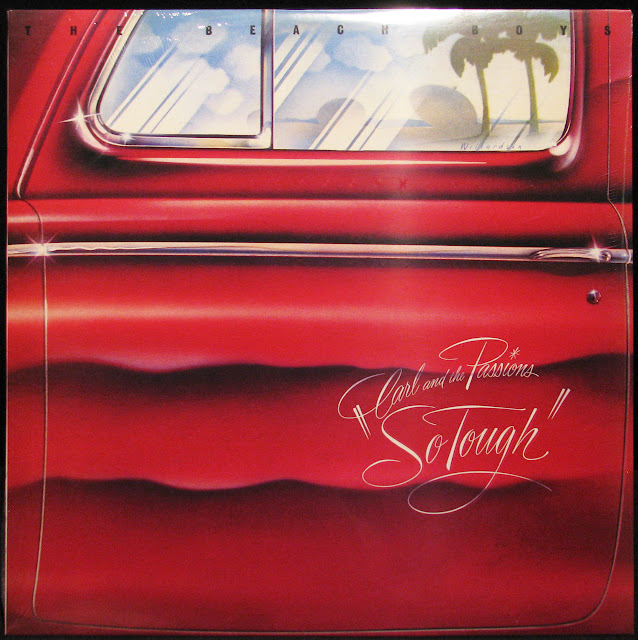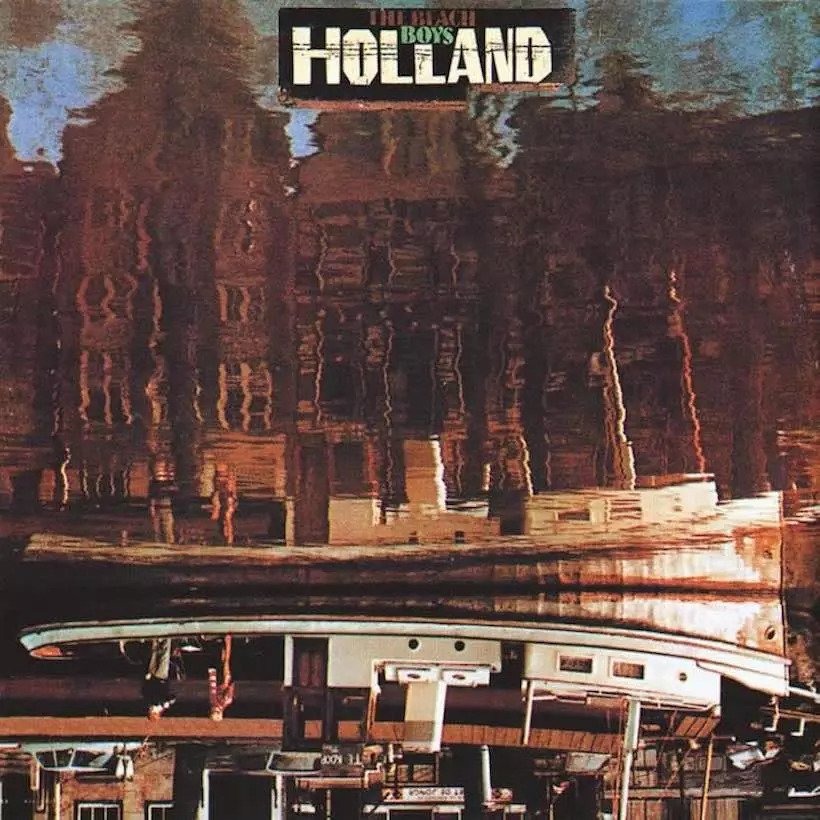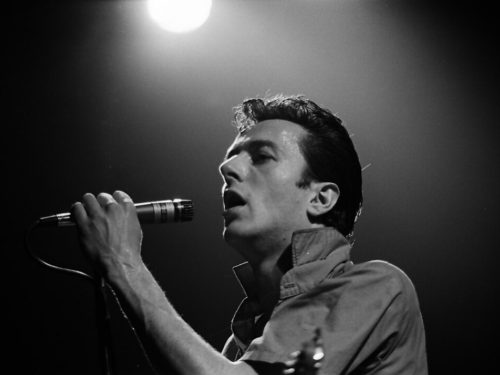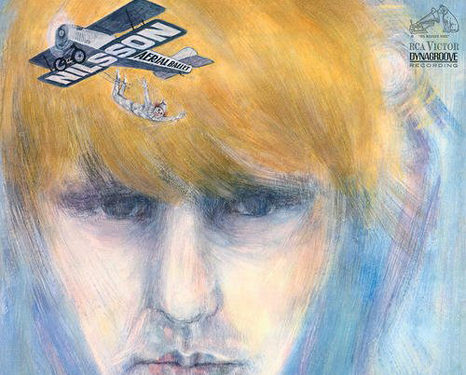On Holland The Beach Boys took their California sound across the Atlantic and embraced their status as sonic outsiders
Regarded by many as the last great Beach Boys album, 1973’s Holland is an enigma. It’s a difficult record to pin down. Holland is constantly rewriting itself yet feels a bit like standing in quicksand. Just as soon as the band seems to have settled on a way forward, they ditch the trail again and leave a new set of breadcrumbs for us to follow. Whether or not it is indeed the last great album the band released, it is undeniably a great Beach Boys album and one that remains mysterious nearly 50 years after its release. With the release of the new Sail on Sailor — 1972 collection, further paths through the album have been revealed in a set chock full of new outtakes, demos, and remasters.
By 1973, The Beach Boys had fallen completely out of step with contemporary pop music. While many of their albums from this era would go on to be critically acclaimed, it took a few decades for that appreciation to come. They had not created an album that was really in touch with the times since before Pet Sounds (1966), which was, conversely, wildly ahead of its time. Surf’s Up (1971), for instance, attempted to capitalize on an era of protest songs with tracks like “Student Demonstration Time” and “Don’t Go Near the Water,” but the attempts to say something meaningful were often too obvious and thus rang hollow compared with some of the more blistering and blatant protest songs of the era, like “Eve of Destruction,” or the work of Phil Ochs. Carl & The Passions – “So Tough” aimed to be a more commercial pop record in 1972. But when its original pressing was packaged with Pet Sounds as a bonus LP, So Tough sounded half-baked in comparison to their masterwork upon its release. The band appeared clueless about how the listening public would perceive them, but with Holland, it feels like they embraced their status as sonic outsiders.

From the opening track, the lead single “Sail On, Sailor,” there is a confidence about Holland that is almost startling for a group that had been struggling with its identity for several years. The Beach Boys are operating in their own world. Instead of trying to fulfill expectations of what their music should be, they cultivate every strange choice they wished to follow. In a fascinating parallel, Holland would be a dual release like So Tough with Pet Sounds. This time, though, the second disc wasn’t a reissue of a bonafide classic, but a musical fairy tale about a Pied Piper who resides in a transistor radio. Brian Wilson wanted Mount Vernon and Fairway to be included on Holland. The band refused, but compromised by allowing the 12-minute piece to be released as an accompanying seven-inch EP. The pairing is strange, but in the bizarre world of Holland, it makes perfect sense. Wilson, who had been struggling with substance abuse issues and largely isolating himself for a time, had barely participated in any Beach Boys albums since the poor reception of Sunflower in 1970. The rest of the band managed to convince Brian to make the journey to the Netherlands with them to record the album, but his involvement was still limited with most of his contributions made in isolation. “It was a very creative time for me,” Carl Wilson would later say. “Brian had me working on the album very hard so he could have some time for himself. He wasn’t really up for doing much, as far as going into the studio every day.” Drummer Ricky Fataar would later recall, “I can’t even remember seeing him in the studio in Holland… we’d just go to work and occasionally see each other. It wasn’t like a one-big-family thing.”
Holland is a record that requires some contemplation. It asks its listeners to trust in the process — especially when Mike Love and Al Jardine begin reciting a spoken word folk tale. From the beginning, the listener is set off from the dock, implored to “sail on.” Holland suggests we are all sailors, sailing through waters both rough and calm — from the easy seas of “Big Sur” into the darkness of “The Trader.” As Holland serves as a reflection of life, its semi-narrative quality works to this same end. Real life is rarely neat and linear, and Holland approaches its cosmic considerations of existence as a series of vignettes.
“Sail On, Sailor” begins the journey, led by a voice belonging to none of the principal Beach Boys vocalists. Instead, it is guitarist Blondie Chaplin, who, along with Fataar, joined the group during sessions for So Tough. Brian served as a writer on the song, although he did not take part in its recording. “Sail On, Sailor” is in many ways a prototypical Beach Boys song. With soaring choruses and one of the tightest arrangements heard from the group in years, the song sounds like it’s being played by a completely rejuvenated band. The entirety of Holland feels like a series of stylistic departures both new and familiar.
With its textured, layered atmosphere, “Steamboat” has an ethereal whimsy that fully evokes floating lazily on waves either physical or psychological. Written by Dennis Wilson and Jack Rieley, the band’s manager at the time, the track feels like an embodiment of ripples on the water, wading out from the song’s core. But every time the listener starts to orient themselves in the music, to get a clear picture, the ripples of the waves distort it. “Steamboat” also features an absolutely ripping guitar solo, one of the few in their catalog.
The reflection in the water only becomes more kaleidoscopic as the album floats into the three-part “California Saga,” composed of “Big Sur,” “The Beaks of Eagles,” and “California.” As the band was knee-deep in recording in Holland, they began to miss their California home, and this suite embodies their nostalgia and their desire to go home. “Big Sur” sounds like it could be a folk song passed down through the generations. It again takes a very different tone from what The Beach Boys were known for up to this point. It is a much more country acoustic-driven sound than they had ever really explored, encompassing a waltz style bolstered by slide guitar. Al Jardine, inspired by a Robinson Jeffers poem, composed “The Beaks of Eagles,” an environmental fable that grounds the album by building a connection to the Earth and the life cycles of its many inhabitants. The song is presented like a series of sights and ruminations from the boat’s deck. “California” features Brian delivering the opening line, one of his few involvements in the recording itself, and rounds out the California Saga, bringing it back home with the most characteristically Beach Boys song on the album. It echoes with shades of “California Girls,” serving as a homecoming not only lyrically, but stylistically.
The B-side begins strong with “The Trader,” written by Carl and Jack Rieley. In speaking about the song, Rieley later said, “Carl was speaking out about the fact that it’s wrong to subjugate a people, as so many have been. ‘The Trader’ is really about racism; these people who got their orders from the king or queen and colonized Africa.” The central theme of the song is clear; it reflects on that idea of being one small part of the universe, being inextricably connected to everyone else in that space, and the inherent responsibility that comes with that. However, this notion takes on a much darker tone here. The trader is “exploring to command more land / Scheming how to rule the waves.” They are not seeking to live in harmony; they are seeking to exploit the people and world around them for their own gain.
Holland allowed a variety of songwriters within the group to shine, with Ricky Fataar being the primary mind behind “Leaving This Town.” It is a gorgeous song that feels as if it is lilting on the waves; it drips with nostalgia and hope — dreams for the next town and maybe some sadness for the one left behind. One of the most notable parts of the track is its electronic interlude, but like any number of unexpected choices on the album, it fits seamlessly and shows a new versatility to The Beach Boys that they had only danced around before. They would later fully embrace synthesizers and electronic sounds on The Beach Boys Love You (1977).
In its exploration of our place in the universe, Holland does not assert that we are the center of it. Rather, it reminds us that we have our own place in it, and one of the most important steps we can take to recognize that is to be present in a moment. The album ends with two of the most collaborative efforts: “Only With You” — with lyrics by Love, music by Dennis, and vocals by Carl — and “Funky Pretty,” produced by Brian and Carl. A quiet, piano-driven song, “Only With You,” finds Carl affirming a sense of devotion and contentment at journey’s end. That peace carries over into the celebratory jam of “Funky Pretty.” With each member of the group taking a turn on lead vocals, it feels like a gathering of the characters met along the way. In these moments of hard-fought celebration, the members overcome the individual struggles plaguing them at that time and reunite in the album’s final moments. By the closing notes, the band prescribes a philosophy, one developed by bearing calm seas and threatening waves. But Holland also encourages its listener to recognize their role in the greater scheme by looking to the reflections of the stars in its waves.
Stay up to date with all things Split Tooth Media and follow Breanna on Twitter
(Split Tooth may earn a commission from purchases made through affiliate links on our site.)




